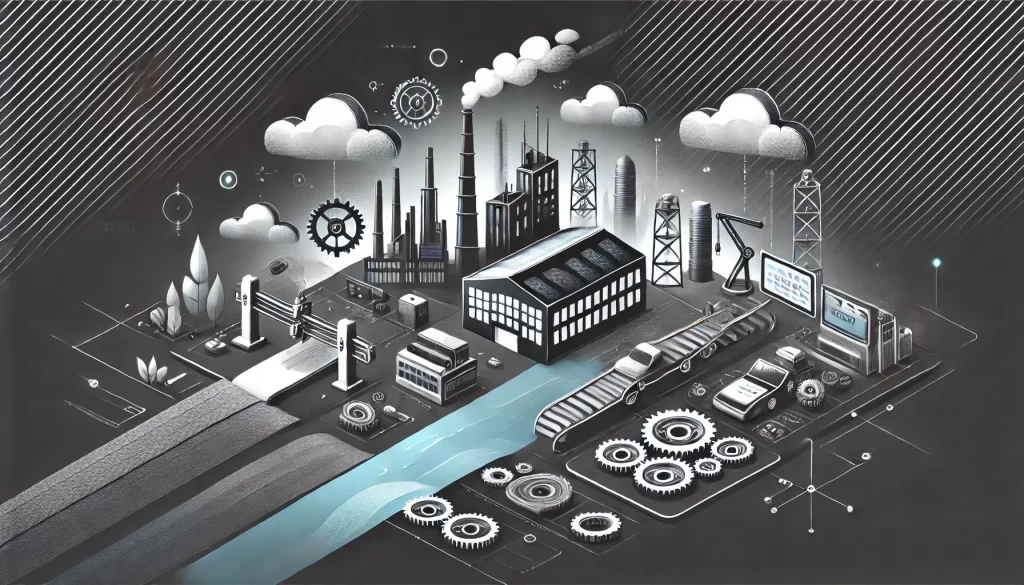Manufacturer: Definition, Types, and Role In The Supply Chain
The Importance and Types of Manufacturing Explained
Published on SlyAcademy.com
Introduction
Manufacturing is the backbone of consumerism and a driving force across countless industries. From the cars we drive and the food we eat to the products we use every day, manufacturers transform raw materials into goods that sustain modern life. For those in ecommerce, understanding how to find the right manufacturers can be vital. This article explores what manufacturers do, their various types, and their critical role in turning parts into a whole.
What is a Manufacturer?
A manufacturer is a company or entity that produces physical goods through various processes, such as using machinery, human labor, and chemical processing. These entities play a pivotal role across industries like automotive, electronics, food and beverage, pharmaceuticals, textiles, and many more.
At their core, manufacturers transform raw materials or semi-finished products into finished goods. These goods may be sold directly to consumers, further processed by other manufacturers, or distributed by wholesalers. Some manufacturers may own all their production facilities, outsource processes, or work within a larger supply chain ecosystem.
The Role of Manufacturers in the Supply Chain
Manufacturers are crucial to the supply chain, and their primary roles include:
- Sourcing Raw Materials: They procure essential materials from reliable suppliers, negotiate prices, and enforce strict quality control.
- Designing Products: Many manufacturers participate in the design process, from market research to creating prototypes.
- Production: This involves operating machinery, managing assembly lines, and adhering to rigorous quality control standards.
- Supply Chain Integration: Manufacturers collaborate with supply chain partners to streamline processes and enhance visibility.
- Logistics and Distribution: They package and ship goods, working with logistics providers to ensure timely delivery and inventory management.
Types of Manufacturers
Manufacturers can be categorized based on their business models, production methods, and market focus. Here are four key types:
Discrete Manufacturers
- Description: They produce distinct, countable products using separate production and assembly steps.
- Examples: Automotive, industrial machinery, medical devices, electronics, and toys.
Process Manufacturers
- Description: Focus on mass production through continuous processes to create goods in bulk.
- Examples: Chemicals, food and beverages, petroleum products, and pharmaceuticals.
Original Equipment Manufacturers (OEMs)
- Description: Specialize in producing parts or complete products sold under another company’s brand.
- Examples: Car engines, generic computer parts.
Contract Manufacturers
- Description: Provide production services for other companies under contract, focusing on their specifications.
- Examples: Clothing for fashion labels, circuit boards for tech companies.
Common Manufacturing Techniques
Manufacturing processes vary based on product and demand. Here are three popular methods:
- Make to Order (MTO): Custom products produced only after an order is confirmed, ideal for industries like aerospace and construction. MTO reduces excess inventory but may lead to revenue variability.
- Make to Stock (MTS): Produces goods based on forecasted demand, common in stable markets. This approach optimizes production but risks surplus inventory.
- Make to Assemble (MTA): Components are pre-made based on forecasts but assembled upon order receipt. It balances lead times but can lead to overproduction of components.
A Brief History of Manufacturing
The evolution of manufacturing highlights its impact on society and the economy:
- Pre-Industrial Era: Handcrafted goods for survival.
- Industrial Revolution (18th-19th Century): Steam-powered factories increased production.
- 20th Century: Assembly lines and electricity enabled mass production. Lean manufacturing and automation refined processes.
- 21st Century: 3D printing, smart factories, and sustainable practices are revolutionizing the industry.

Local vs. Overseas Manufacturers
Local Manufacturers:
- Benefits: Easier communication, faster shipping, and fewer language barriers.
- Challenges: Higher labor and production costs.
Overseas Manufacturers:
- Benefits: Lower production costs and potential for competitive pricing.
- Challenges: Longer lead times, customs delays, and complex logistics.
Many businesses work with both local and overseas manufacturers to leverage their respective strengths.
Manufacturers Make the World Go Round
Every item you touch, from clothing to technology, is shaped by manufacturing. As new technologies emerge, manufacturing continues to evolve, ensuring a more sustainable, efficient, and innovative future.








